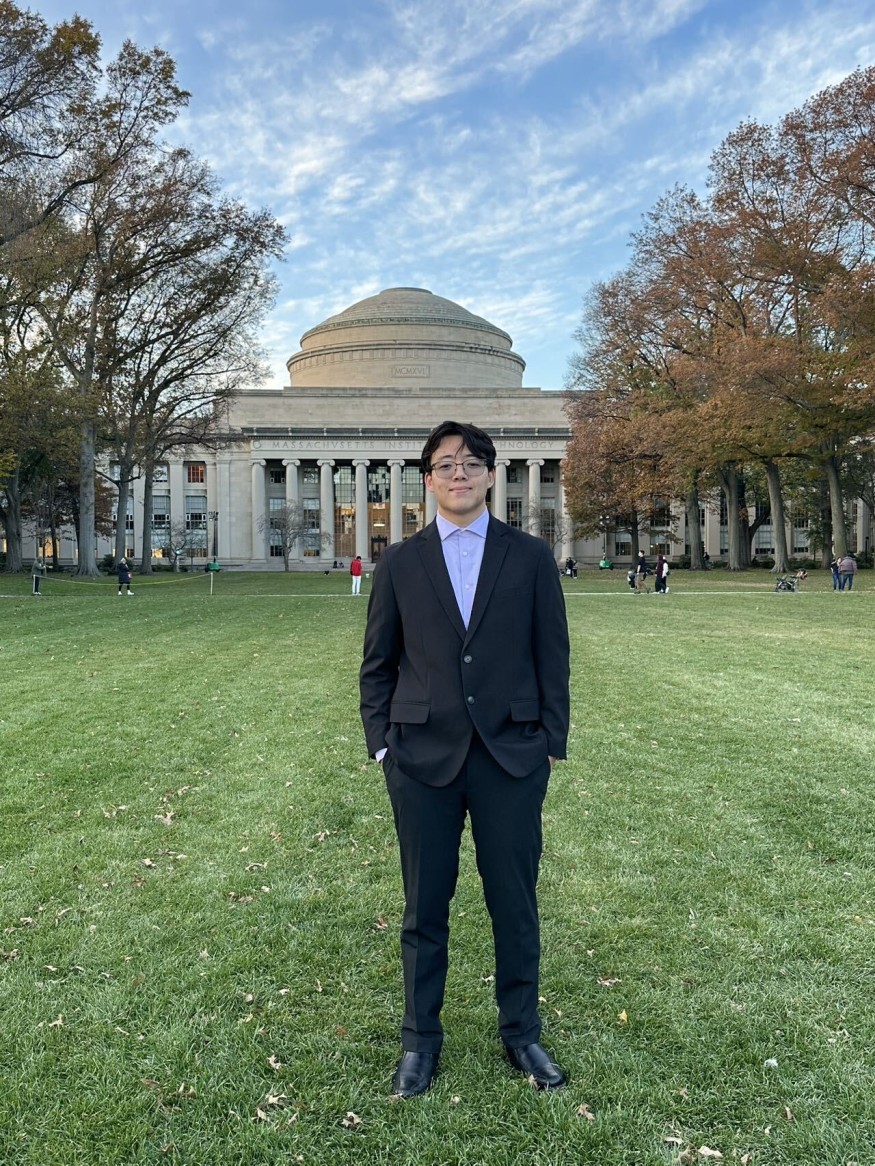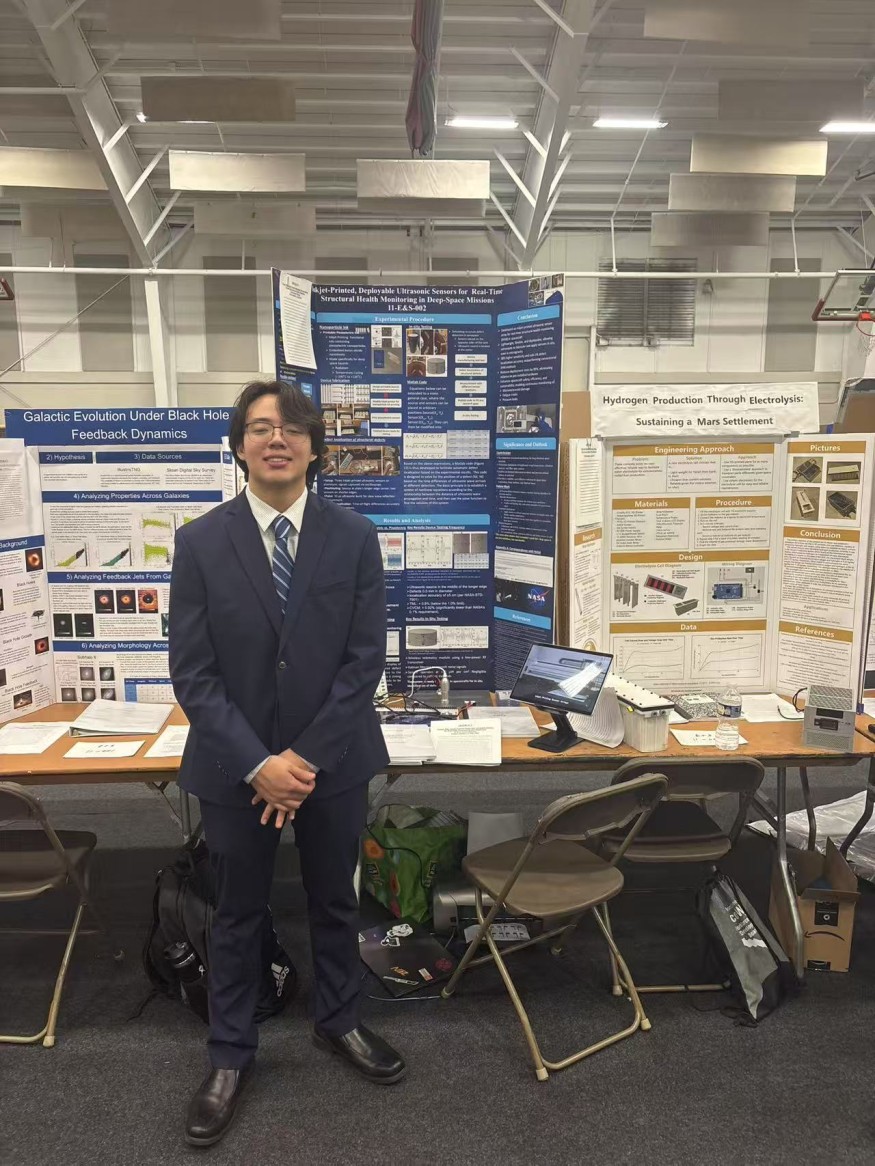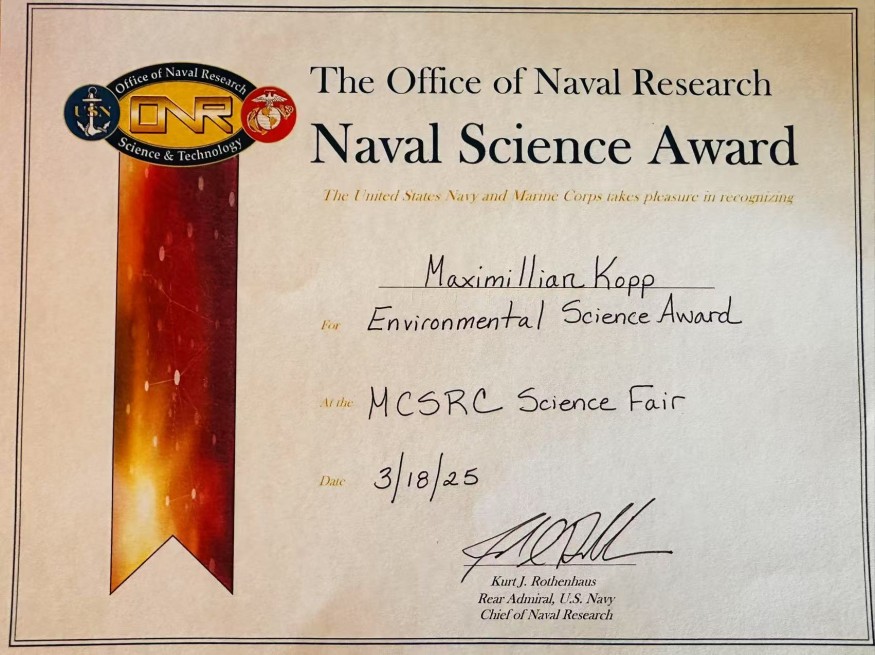
Medical technology has advanced significantly in recent years, yet diabetes management remains a complex challenge. Traditional glucose monitoring methods, such as finger-prick tests and continuous glucose monitors (CGMs), have helped millions of people track their blood sugar levels, but they are far from perfect. Finger-prick tests can be painful and lead to inconsistent tracking, while CGMs, though more advanced, require sensor implants and frequent replacements, making them expensive and inaccessible for many patients.
One of the most promising developments in this field is the integration of AI with biosensors to measure glucose levels through the skin without requiring blood samples. Max Kopp, a 17-year-old researcher and the Founder and CEO of Vitasense, is among those working to refine this technology. His research focuses on how light-based biosensing and machine learning algorithms can improve glucose monitoring accuracy by adapting to an individual's biological and environmental factors.
The Role of AI in Biosensor Optimization
The need for a non-invasive, real-time glucose monitoring solution has driven decades of research. Yet, no commercially available device has met the accuracy and reliability required for widespread adoption. Scientists and engineers continue to explore alternatives, with a growing focus on biosensor technology and artificial intelligence (AI) to improve the precision of non-invasive glucose detection. If successful, these innovations could reshape how millions of people manage diabetes, reducing the need for invasive monitoring methods while making glucose tracking more accurate and convenient.
"Science and innovation should be about making a real-world impact," Kopp says. "If AI-powered biosensors can eliminate the need for invasive glucose testing, we could reduce a major burden for millions of people."
AI-enhanced biosensors could continuously learn from a user's glucose patterns, refining their accuracy. This aligns with broader trends in predictive diagnostics, automated health monitoring, and personalized medicine, where AI is increasingly used to detect early disease markers and optimize real-time health tracking.
In addition to glucose monitoring, AI-powered biosensors could improve overall metabolic health tracking. By collecting real-time data, these sensors could provide insights into how diet, exercise, stress, and hydration affect blood sugar levels. Over time, this could enable personalized diabetes care, allowing individuals to adjust their routines based on real-time metabolic feedback rather than relying on delayed or inconsistent test results.
Ensuring Accessibility and Economic Viability


Despite the promise of new diabetes technology, affordability remains a significant barrier. The cost of CGMs ranges between $3,000 and $6,000 per year, limiting their accessibility to wealthier patients or those with comprehensive insurance coverage. If AI-driven biosensors are to become viable, they must not only match the accuracy of CGMs but also be affordable enough for widespread adoption.
Kopp's research explores how scalable biosensor materials could reduce manufacturing costs while maintaining clinical accuracy. His nonprofit, The Kopp Foundation for Diabetes, also promotes research and policy initiatives to make diabetes technology more accessible.
"Current CGM devices have come a long way, but they still require implanted sensors. We're proving that accurate glucose monitoring can happen without breaking the skin," Kopp stated.
In recognition of his research and leadership in medical innovation, Kopp was named to Philly Inno's 25 Under 25 in 2025—a distinction awarded to young trailblazers who are redefining the future of science, health, and technology.
His work hasn't gone unnoticed. In March 2025, Kopp was awarded the Naval Science Award from the Office of Naval Research (ONR) at the MCSRC Science Fair. The award, given by the U.S. Navy and Marine Corps, recognized his environmental science research for its innovation and scientific rigor. Rear Admiral Kurt J. Rothenhaus, Chief of Naval Research, personally commended Kopp's work, reinforcing the growing recognition of his biosensing and medical technology contributions.
"If new medical technology is only available to a select few, then its impact is limited," Kopp explains. "The real goal should be ensuring that innovations in biosensing and AI benefit as many people as possible, not just those who can afford them."
Affordability and Access: The Bigger Challenge in MedTech
Bringing noninvasive glucose monitors to market requires more than technological advancements—it also involves meeting rigorous regulatory and clinical validation processes. The U.S. Food and Drug Administration (FDA) and similar health agencies worldwide require extensive testing to ensure that any new glucose monitoring system meets accuracy, safety, and reliability standards before it can be widely adopted. These regulatory steps are designed to protect patients but also present significant challenges for researchers and developers working to introduce innovative medical technologies.
One of the key hurdles in developing non-invasive biosensors is ensuring consistent accuracy across diverse populations. Factors such as skin properties, hydration levels, and environmental conditions can affect sensor readings, making it difficult to achieve the precision required for clinical approval. Many past attempts at non-invasive glucose monitoring have struggled to overcome these obstacles, leading researchers to explore new approaches.
Max Kopp seeks to refine biosensor technology through his work at Vitasense, intending to integrate adaptive AI models to improve real-time glucose detection. His research focuses on developing biosensors that dynamically adjust to an individual's physiology, making glucose readings more accurate and reliable. By leveraging machine learning algorithms, Kopp aims to enhance biosensor calibration, allowing the system to self-correct based on external variables and user-specific data.
Unlike traditional glucose monitors that directly measure blood sugar through invasive methods, AI-enhanced biosensors rely on indirect detection techniques, making accuracy validation more complex. Researchers working in this space, including Kopp, are exploring ways to ensure that AI-powered models continuously refine themselves over time, adapting to a broader range of users.
To establish AI-powered biosensors as a trusted standard in diabetes care, researchers intend to conduct extensive validation studies that assess these systems' long-term accuracy and adaptability. While regulatory approval remains a critical milestone, advancements in AI-driven calibration and biosensor adaptation suggest that non-invasive glucose monitoring is steadily progressing toward real-world application. Kopp's research seeks to contribute to this evolution, supporting efforts to develop a clinically validated, accessible, and user-friendly solution for people with diabetes.
What the Future Holds for AI-Driven Biosensors
AI-powered biosensors are being developed for more than just diabetes care. Researchers are now exploring how they could be used to monitor hydration, track stress levels through cortisol, and detect cardiovascular risk factors. As wearable medical devices become more advanced, AI-integrated biosensors could be critical in shifting healthcare from reactive treatments to proactive monitoring.
With AI-enhanced real-time tracking, individuals could manage chronic conditions more effectively, reducing hospital visits and allowing for early intervention before health issues escalate. Integrating biosensors into everyday wearables, such as smartwatches, could make continuous health monitoring essential to preventative care.
In addition to individual health tracking, AI-driven biosensors could support public health efforts by providing large-scale health trend data. By analyzing anonymous data from millions of users, researchers could identify disease progression patterns, environmental changes' effects on health, and early warning signs of outbreaks. This kind of real-time health data could be used to improve epidemiological models and public health response strategies.
"The future of healthcare is not just about treating diseases—it's about monitoring and preventing them before they become life-threatening," Kopp says. "AI-driven biosensors could play a key role in that shift, making real-time health tracking a standard part of everyday life."
For more information, visit www.MaxKoppTech.com.











